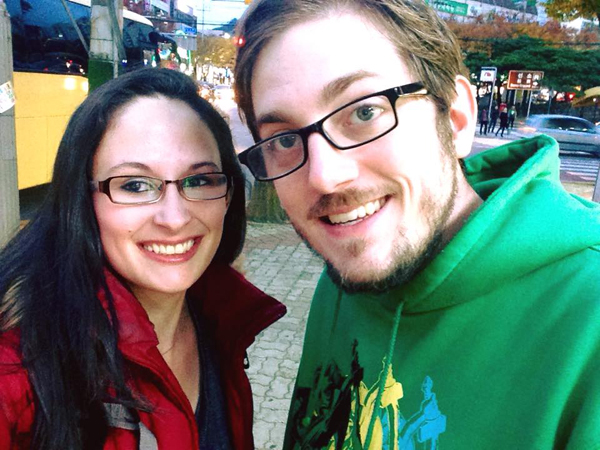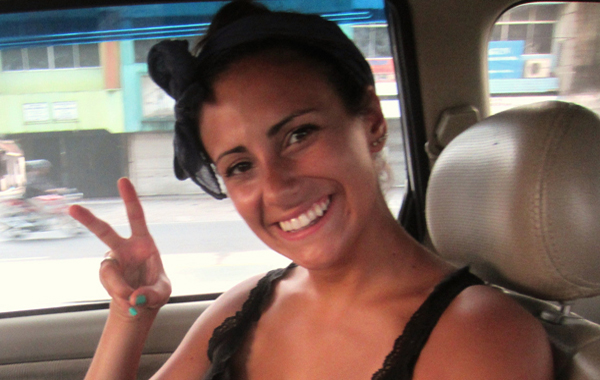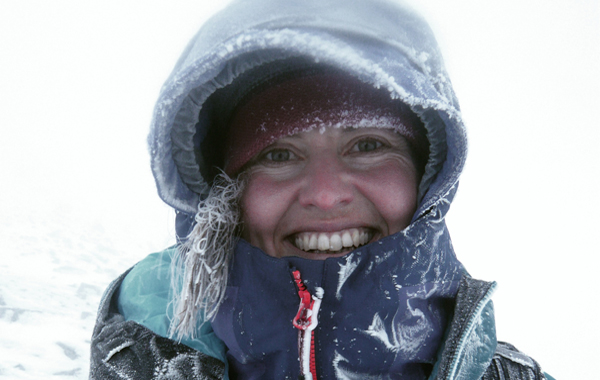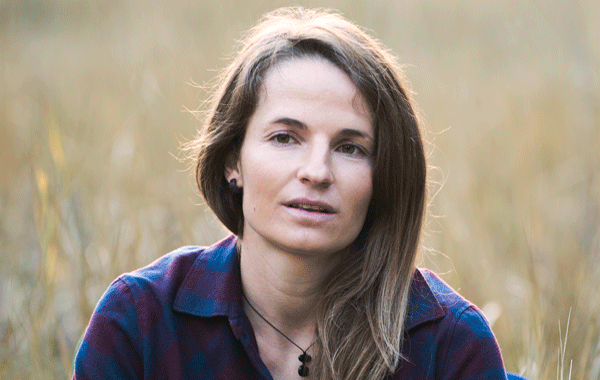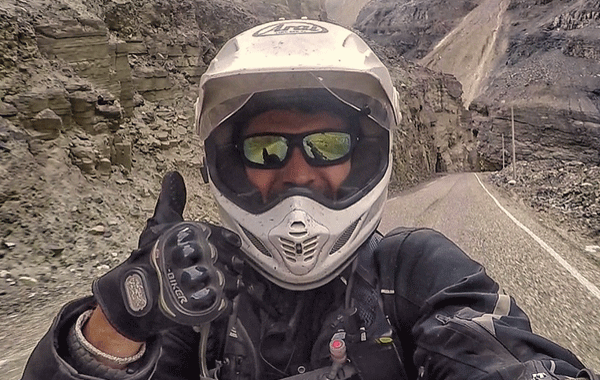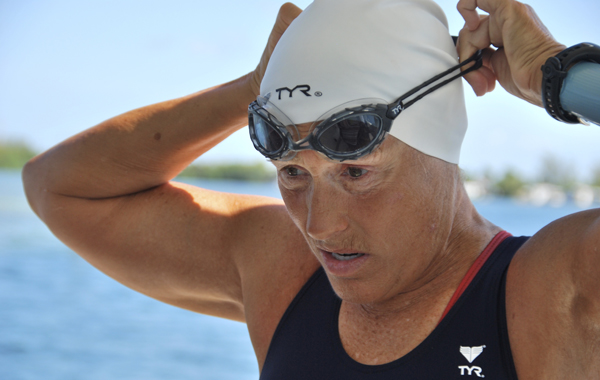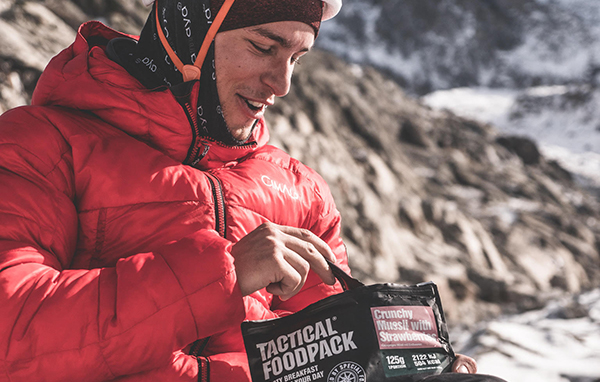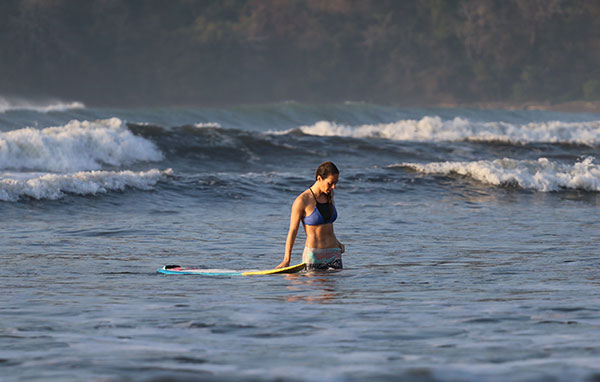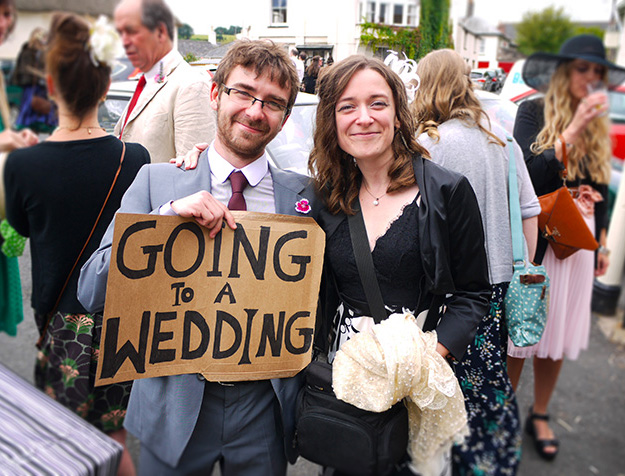
Ania and Jon after hitchhiking to a wedding in Devon.
WHEN JON BARRETT and Ania Mochnacka met in Macedonia neither had any idea they would they would go on to travel the world together. However, a common interest and a passion for adventure has seen them hitchhike around the globe and in the process start their website www.hitchhikershandbook.com – a guidebook to hitchhiking and travelling on a budget.
In this interview Jon talks about some of the couple’s experiences over the last seven years as well as their 27,000km hitchhike challenge which is taking place this year.
How did you meet Ania and did you have any idea that you would soon be travelling the world with her?
Ania and I met seven years ago in a hostel in Skopje, Macedonia. At the time we were both fresh faced 20-somethings, making decisions about what we were going to do with our lives. I had finished university and after a year of working in dead-end soul destroying jobs, I was preparing to move back from Bristol to London and the none too cheering prospect of again living with my parents. It was for this reason that I was enjoying my last taste of freedom by backpacking around Europe with an Australian family friend.
Our first meeting showed little sign of what was to become the defining relationship of our lives. Ania was discussing something deep and meaningful with a Belgian guy and I believe that she thought I was an arrogant so-and-so who butted in on her conversation. It was not until the next day when the alcohol had been put away and we decided to look around town together that we actually started to bond.
Ania had been planning to travel onto Albania and back north through to Poland and I had been planning on heading west to Bulgaria and Turkey. Perhaps it was my animal magnetism or more likely a dogged sense of determination, but I eventually persuaded Ania to ditch her original plans and come with me on a spontaneous Turkish adventure. A trip across the Black Sea on a Russian cargo boat, and an emotional farewell and reunion in Czech Republic later, and I had moved to Poland to start a new life as an English teacher.
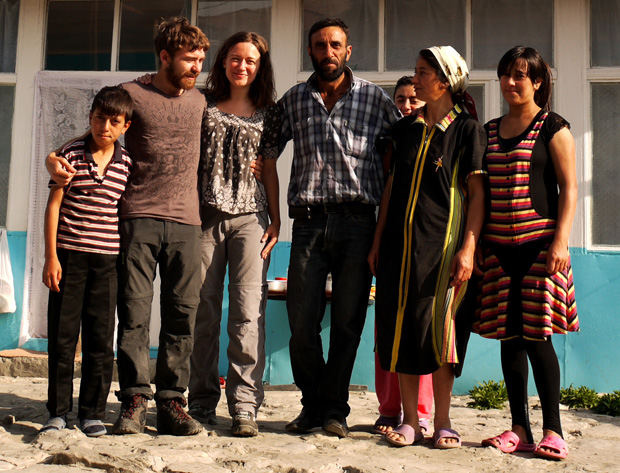
Ania and Jon with a family in Lahic, Azerbaijan.
You have since travelled together all around the world. Where have some of the highlights been?
Our best times travelling almost always involve the experiences we have had with local people who share our sense of adventure, perspective and irreverent humour. People from all around the world have opened their doors to us and we could never fully express how grateful we are. Eating the tastiest steak in the world with Eneko in Pamplona, Spain; hanging out with Can and his wonderful friends at a BBQ just outside Ankara, Turkey; walking around Baku with the most charming man in Azerbaijan Jamil and being made to feel one of the gang at a drunken house party in Armenia, are all experiences that we wouldn’t change for the world. And, of course, meeting our hitchhiking inspiration Ang in Malaysia was an event that has effected our lives to this very day.
What’s it like sharing the experiences and doing everything together? Is there anything about each other that gets on your nerves?
Travelling as a couple is a very different experience to any independent trip. Having the immediate reaction to any given situation removes the sense of isolation and as such we spend less time searching out fellow travellers (and English speakers) than we would perhaps do alone. It has also made us bolder (I believe we wouldn’t be such committed hitchhikers if we weren’t a couple) and more prepared to face hardships, as we could always fall back on the knowledge that although we were cold, hungry or lost, at least we have each other.
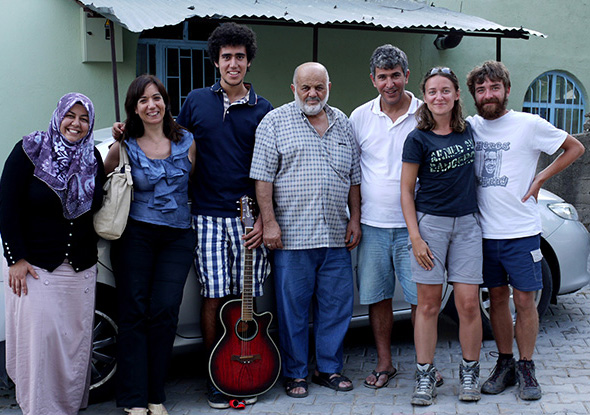
Ania and Jon with two Turkish families.
As for getting on each other’s nerves, we wouldn’t be human if we denied that we had never had a crossed word or a day’s silence. Conflict most often occurs when the time between meals stretches to inadvisable lengths and it is surprising how often peace breaks out after a square meal.
Along the way you must have had some incredible experiences but have there been any times you’ve come close to danger or found yourselves in a tricky situation?
We have always felt extremely lucky whilst travelling that situations have not got out of hand and, considering the risk we take by entering strangers cars, we have not had more problems. This being said, developing a rash all over my body whilst in a Laotian village miles from any functioning medical services was a bit of a worry at the time. The Armenian truck driver who confused his bulky load with a formula 1 car was also an experience we could do without living again. And the slightly surreal experience of being picked up by a non-English speaking Turkish driver, who offered to smoke marijuana with us, then proceeded to use the Lonely Planet guide book to translate his love of menstruating girls and if we would be so kind as to have sex in front of him, was a little different. We, of course, refused.
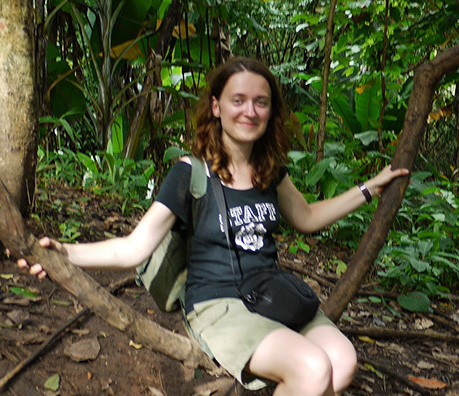
Ania hiking in the north of Thailand.
Could you give us a bit of information about www.hitchhikershandbook.com and the reason you set it up?
We set up HitchHikers Handbook two years ago after returning from a four-month hitchhiking trip across the Caucasus, Turkey and Greece. First and foremost it was for us a little celebratory corner of hitchhiking, an ode to a form of travel that seems to provoke fear, despite its essentially celebratory view of human kindness. We wanted to show people that beyond being an extremely cheap mean of travel it also offered the opportunity to escape from the modern tourism industry, where people move from hostel to hostel, organised trip to organised trip without actually meeting any locals or learning anything beyond the limits of the gap year travelling ‘experience’.
We wanted to create a place where people can read about hitchhiking experiences, find practical budget travel information, and through Ania’s photography, be inspired to visit places off the beaten track.
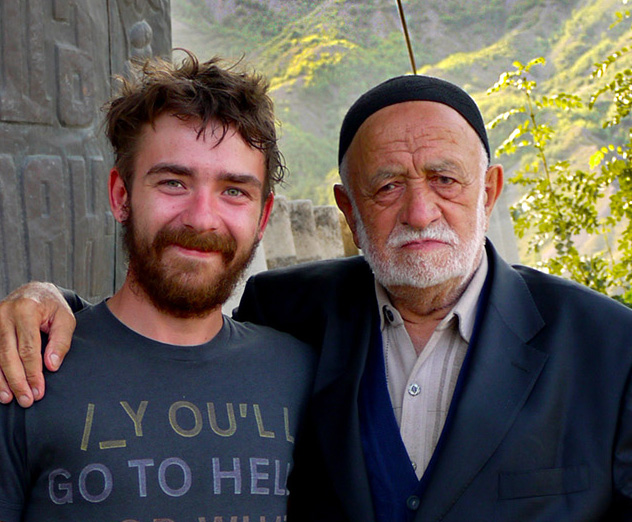
Jon with an old man in Azerbaijan.
You have an upcoming project, The Long Way Home, which you aim to start in 2015. Could you give us a bit more information about the 27,000km hitchhike and what you’ve been doing to prepare for it?
The trip, which we have titled the Long Way Home aka the Hitch-hiking Cultural Relay, will take us further than ever before, as we aim to cover over 27,000km and do it all by hitchhiking. We will start in Turkey, moving onto Iran, Turkmenistan, Uzbekistan, Tajikistan, Kyrgyzstan, Kazakhstan, China and Mongolia before heading back to Europe, our home, through Russia, Estonia, Latvia and Lithuania.
While on the road, we want to create a chain of learning, teaching and gift-giving, as our small contribution to the togetherness of mankind. As an example, we will take with us a Yorkshire pudding tray (something unique to the British culture) and teach people on the way how to use it. In return, they will teach us something from their culture and we will pass this knowledge onto the people in a following country, giving them a gift sent by the previous person.
In preparation for the trip, apart from planning the route, visas, costs and equipment we will need, we have been reaching out to different organisations who can help spread the word about the trip. As we want to encourage people to learn about other cultures, and hopefully incorporate elements into their own lives, of what we have learnt on the road.
Too often when on the road do we encounter hostility between near neighbours who see only a stereotype and forget that behind the nationality lies a person with interests, fears and ambitions no different to their own. We are going to film and describe the whole process on our site with the belief that by demonstrating the diversity of cultures in the world we can encourage a little understanding as well as show how fascinating it is to learn from others.
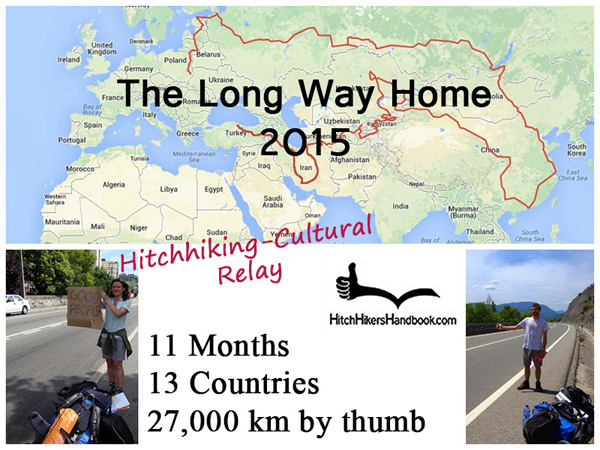
The Long Way Home 2015.
What are your plans for post 2015 and have you ever thought of writing a book?
The end of trip will also mark for us the beginning of the next chapter of our lives. We will get married, a logistical nightmare in the making given our different nationalities and the fact our friends are spread out all over the Earth, as well as try to find the perfect place in which to settle. The plan is to return to Spain, our new adopted home, try to open a language school and eventually start our own family. If we find time in the future we may well try to write down our experiences in book form, but let’s make sure we get back from the trip alive first.

